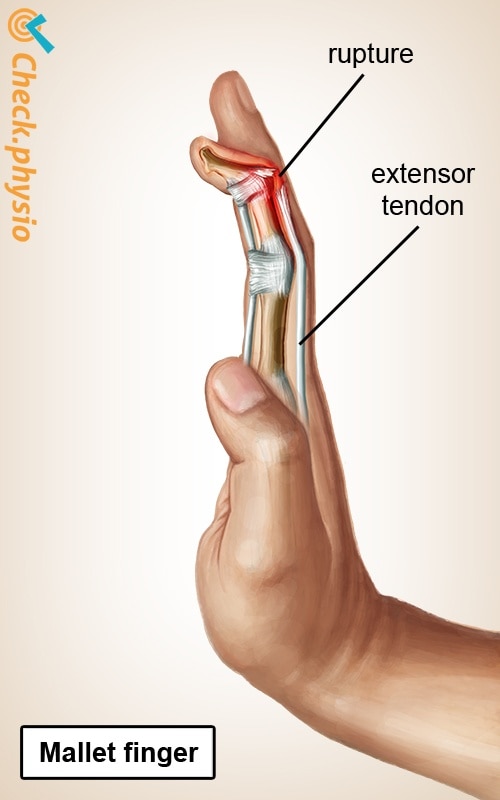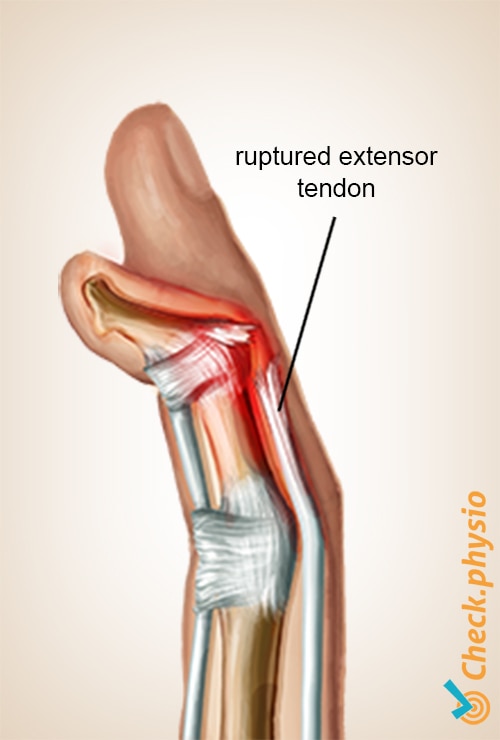Baseball finger
Mallet finger
In baseball finger, the tendon that extends the tip of the finger is ruptured, making it impossible to extend the finger actively.

The tip of the finger assumes a typical flexed position, as shown in the photograph.
Description of condition
The tip of the finger extends using the extensor tendon that is attached to the tip of the finger like a rope. When a muscle pulls on the tendon, the tip of the finger extends. If the extensor tendon ruptures, the tip of the finger is suddenly unable to extend and remains in the bent position. Sometimes a piece of bone to which the tendon attaches will also break off.
Cause and history
Baseball finger occurs when the tip of the finger is flexed forcefully. This is common in some other sports such as volleyball, basketball or soccer (goalkeepers). The ball strikes the tip of a finger, forcing it to flex suddenly.
The extensor tendon can also rupture during daily activities. Classic examples include making the bed or pulling up a sock.
Signs & symptoms
- The moment at which the extensor tendon ruptures may not always painful, the pain may start later.
- The tip of the finger is in a flexed position.
- The fingertip cannot be extended.
- Localized swelling is present.
Diagnosis
Treatment
The injury is usually treated with a splint for the first six weeks. The fingertip is fixed in extended position and may must not be bent during that period. The splint must be worn continuously. If the symptoms are not resolved, or if a larger piece of the bone has broken off, the tendon can be reattached surgically.
Following splint treatment or surgery, a physiotherapist can assist in gradually building up mobility and strength in the finger.
Exercises
You can check your symptoms using the online physiotherapy check or make an appointment with a physiotherapy practice in your locality.

References
Peters-Veluthamaningal, C., Willems, W., Smeets, J.G.E., Windt, D.A.W.M. Van der, Spies, M.N., Strackee, S.D., Vos, K., Wind, L.A. & Geraets, J.J.X.R. (2010). NHG-Standaard. Hand- en polsklachten. Huisarts Wet. 2010:53(1):22-39.



